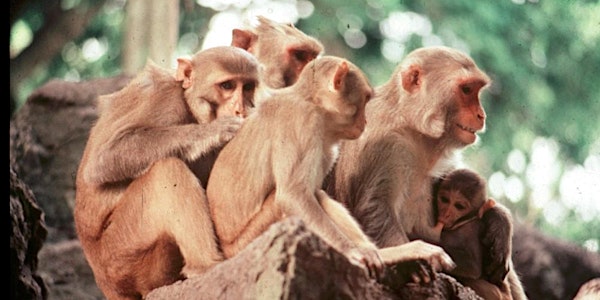
Comparative perspectives on social inequalities in life and death
Date and time
Location
Main Lecture Theatre
The Old Divinity School St John's College Cambridge CB2 1TP United KingdomDescription
A one day interdisciplinary conference:
Comparative perspectives on social inequalities in life and death
including a Public Lecture:
Development of social behaviour in children from infancy: neurobiological, relational and situational interactions
Although ticket sales are now closed, there may be tickets available on the door (without lunch)
Who is this conference for?
This conference is for everyone with an interest in inequalities in human health and what can be learned from the study of the biology, behaviour and social interactions of humans and other social mammals.
We welcome students and academic colleagues especially from across the University including Sociology, Zoology, Geography, Anthropology, Epidemiology and the Natural Sciences.
With its focus on the adaptive value of social relationships and care giving, the conference will be of interest to researchers on the early life origins of healthy lives and interventions to optimise them, and to practitioners in public health and primary care and maternity, infant care and social care.
The conference brings together eminent researchers who studied under the benevolent supervision of Professor Robert Hinde and will be of great interest to those who also benefitted from his teaching.
What is this conference about?
The purpose of this conference is to widen our understanding of inequalities in human health to inform future enabling action. We aim to do this by consideration of relevant processes among other social mammals. We will consider particularly social, behavioural and biological mechanisms within social groups and their impact on thriving, survival and reproductive success.
Health inequalities persist, and are currently widening, in the UK and globally. There is strong evidence that position in the social hierarchy in humans is closely related to disease risk. The result is a social gradient in health — the worse health the lower the social position.
Social hierarchies, sustained across generations, are also widespread among other mammals and there is increasing evidence of the mechanisms by which they influence survival and reproductive success in these groups. We are particularly interested in the adaptive value of social relationships and how, within social groups, behaviour of individuals can vary between co-operative and competitive. A central form of cooperative behaviour is care giving and we will discuss this behaviour which is a powerful predictor of later social and health outcomes in humans and other social mammals.
What does the conference cover?
The programme moves from the consideration of the persistence of inequalities in human health, exploring the relevance of social context and mechanisms that sustain social position across both time and generations, to a consideration of fitness in other social mammals and aspects of resilience in unstable environments. In the afternoon, we take examples of free-living baboons in Botswana, and captive colonies of macaques in Bethesda, USA to consider social and epigenetic mechanisms maintaining social hierarchy and relationships across generations.
Conference Programme

The Public Lecture begins at 5pm following tea at 4.30 pm
It is given in honour of Professor Robert Hinde CBE FRS FBA, former Master of St John's College and Emeritus Royal Society Research Professor of Zoology at the University of Cambridge.
The lecture addresses a particular interest of Professor Hinde's; the extent to which human differences in behaviour and relationship represent adaptations to the worlds in which children grow up
The lecture is delivered by:
Marinus van IJzendoorn, Professor of Child and Family Studies at Leiden University; Wellcome Trust Visiting Professor at Sidney Sussex College and the Cambridge Institute of Public Health at the University of Cambridge.
Marian Bakermans-Kranenburg, Professor of Neurobiological and Environmental Determinants of Parenting and Child Development, Centre for Child and Family Studies, Leiden University.
This lecture presents empirical work on prosocial behaviour, inspired by the evolutionary theory of attachment. It considers prosocial behavior as any action that serves to benefit another person with or without costs for the agent.
The presentation will discuss neurobiological, parental and situational factors that shape children’s prosocial behaviour. Prosocial as well as antisocial behaviours emerge in infancy. This raises the question as to whether prosociality is inborn or socialized by parents. Twin studies suggest a genetic component in prosociality, but molecular genetic studies so far fail in the identification of these genetic factors. Studies on gene-by-environment interaction, in particular on differential susceptibility, seem promising, and the role of parents appears undeniable. The speakers used intranasal oxytocin administration to study hormonal influences on prosocial behaviour moderated by adverse childhood experiences and examined how prosociality is embedded in neural (re-)activity and brain morphology.
They argue that how the situation impinges on and is perceived by the individual, may play a more important role in human development than is currently acknowledged in research and theories of moral development.
Organised by
Who is organising the conference?
The conference is organised by the St John's College Reading Group on Health Inequalities.
We now present an interdisciplinary programme informing understandings of inequalities in health by drawing on new data from other social mammals, particularly non-human primates. The programme addresses the ways in which human and animal studies seem to proceed in parallel, with each side knowing little about the work of the other, and brings them together.
Contact: h.lawrence@joh.cam.ac.uk